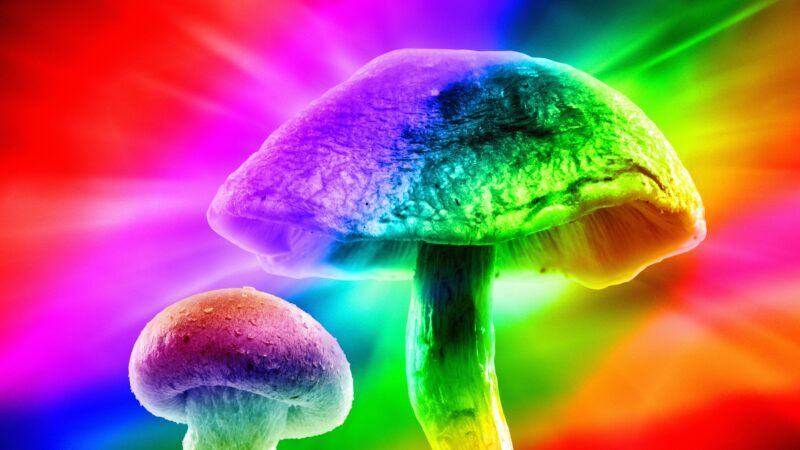Detroit Becomes the Second-Largest U.S. City To Urge Tolerance of Psychedelic Use
Voters overwhelmingly approved a ballot initiative that makes "entheogenic plant" possession the city's "lowest law-enforcement priority."

Detroit voters this week overwhelmingly approved a ballot initiative aimed at protecting people who consume "entheogenic plants" from arrest and prosecution. Proposal E, which was supported by 61 percent of voters, makes "personal possession and therapeutic use" of natural psychedelics by adults "the city's lowest law-enforcement priority." Detroit is the second-largest U.S. city to adopt such a policy.
Just a month ago, the Seattle City Council unanimously approved a resolution that likewise urged cops to leave psychedelic users alone. That measure covered "any living, fresh, dried, or processed plant or fungal material, including teas or powders, that may contain currently scheduled or analog psychoactive indolamines, tryptamines, or phenethylamines, including, but not limited to, psilocybin mushrooms, ayahuasca tea, mescaline, and iboga." While the Detroit measure does not define "entheogenic plants," an analysis presented to the Detroit City Council suggests the intended meaning is similar. Unlike Seattle's resolution, Proposal E does not cover "cultivation" or "sharing."
Although the Detroit ballot initiative claims to "decriminalize" natural psychedelics "to the fullest extent permitted under Michigan law," it does not affect state penalties for possessing such drugs, which Michigan classifies as Schedule I substances. Simple possession is a misdemeanor punishable by up to a year in jail and a $2,000 fine.*
S.B. 671, which Michigan state Sens. Jeff Irwin (D–Washtenaw County) and Adam Hollier (D–Detroit) introduced in September, would decriminalize the possession and use of "entheogenic" plants or fungi, along with their noncommercial manufacture and delivery. The bill covers plants or fungi containing dimethyltryptamine, ibogaine, mescaline, psilocybin, and psilocyn.
The Detroit and Seattle measures are part of a broader trend. In 2019, Denver voters approved a groundbreaking initiative that made adult possession of psilocybin the city's lowest law enforcement priority and prohibited the use of public money to pursue such cases. Last year, the city councils of Ann Arbor, Michigan; Oakland, California; and Santa Cruz, California, enacted similar measures.
Also last year, voters in Washington, D.C., approved a ballot measure urging tolerance of "entheogenic plants and fungi." In September, the Grand Rapids, Michigan, City Commission endorsed decriminalization of natural psychedelics, saying "those seeking to improve their health and well-being through the use of Entheogenic Plants and Fungi should have the freedom to explore these healing methods without risk of arrest and prosecution."
Oregon voters went further last November by passing a ballot initiative aimed at establishing state-licensed "psilocybin service centers" where adults can legally consume the drug under the supervision of a "facilitator" after completing a "preparation session." The initiative says regulators "may not require a client to be diagnosed with or have any particular medical condition as a condition [of] being provided psilocybin services." Another Oregon ballot initiative approved in the same election decriminalized low-level possession of drugs, including psilocybin and other psychedelics.
*CORRECTION: The original version of this post inaccurately described the penalties for simple psychedelic possession in Michigan.


Show Comments (39)